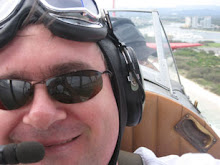In response to BBC Director General Mark Thompson's budget squashing at the Beeb, one of the bigger production areas, "Factual & Learning," is to move their post-production in-house, allowing Producers to cut their own shows on Final Cut Pro systems. Because those production staff would be no longer needed, 424 are to be shown the door.
"A senior figure in BBC's documentary and contemporary factual department told Broadcast: "The first experiment was on Full on Food. They found out they wouldn't save a lot of money by getting rid of editors - it showed that producers cutting programmes spent far too long doing it, and that they lacked an objective point of view that editors give. It reinforced the importance of traditional cutting skills.
"There's just a suspicion among producers and assistant producers that the point of all this is to make savings, and that isn't going to happen. And there's a suspicion that it means people working even longer hours. We'll just have to wait and see." "
There's a reason that film and television production is a collaborative process. When you've been involved from the script through shooting to the final cut, it's very difficult to step back and look at a project objectively. Inevitably you want to leave something in because you thought it was funny at the time, or you took ages to get the right shot, but in the cold light of day it just doesn't work with the rest of the show. In that case, it needs someone to look at it and say "No, that's got to be cut out." That's why they call those people "EDITORS."
As I've learned in the last year at the job, producers can be taught to edit, and I mean beyond simple monkey-cutting; just slapping pre-built elements together, but what we do is different to full on production work (of course, that's not always going to be the case. There's something been given the green light we're to start working on. More information later). Given time, people can be taught almost anything, if they really want to learn it.
One of my old colleagues back in T.V., a grizzled old Technical Director with a short fuse and no time for idiots, once told me that for the next ten years the most popular person in a newsroom would be the journalist that could shoot and edit their own work. BUT, he went on, after that things would go back to the old way, with dedicated craft specialists working in designated fields of production. I don't know how accurate this prediction is likely to be, but even if he's spot on the money there'll still be a further eroding of traditional craft skills in an industry that already sees ongoing training as a burdensome expense.
I'm finding more and more, as I suppose it should be with all worthwhile intellectual endeavour, that the further I delve into these issues the more confused I'm becoming. I said the other day that I really enjoy the work of some of these amateur video storytellers, a movement that seems to eschew (for the time being) pretensions of production values while still managing, on occasion, to be engaging, however at the same time I'm worried about this move in big media towards mediocrity for the sake of dollars. The only true way to learn this stuff is on the job, with the top line equipment. It's not something that the tertiary education sector can really do a great job at, despite their statements to the contrary. Speaking to the senior TV editor at work yesterday about editing "courses" he just shrugged and said "They teach you all these theories and this and that, but in the end it's mainly 'feel'. You have to 'feel' your way through it. If it works, you know it works, if it doesn't you try again." Problem is, you don't get "feel" without hours of flight time on some form of editing platform, whether it's a tricked-out Symphony system, a copy of Windows Movie Maker, a couple of tape decks or a Steenbeck, with a specific goal in mind.
Now I'm just rambling. Back to my assignment.
Subscribe to:
Post Comments (Atom)


No comments:
Post a Comment